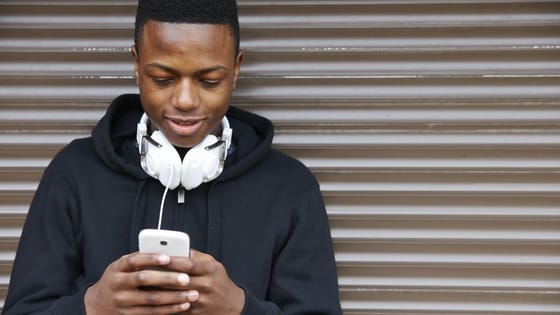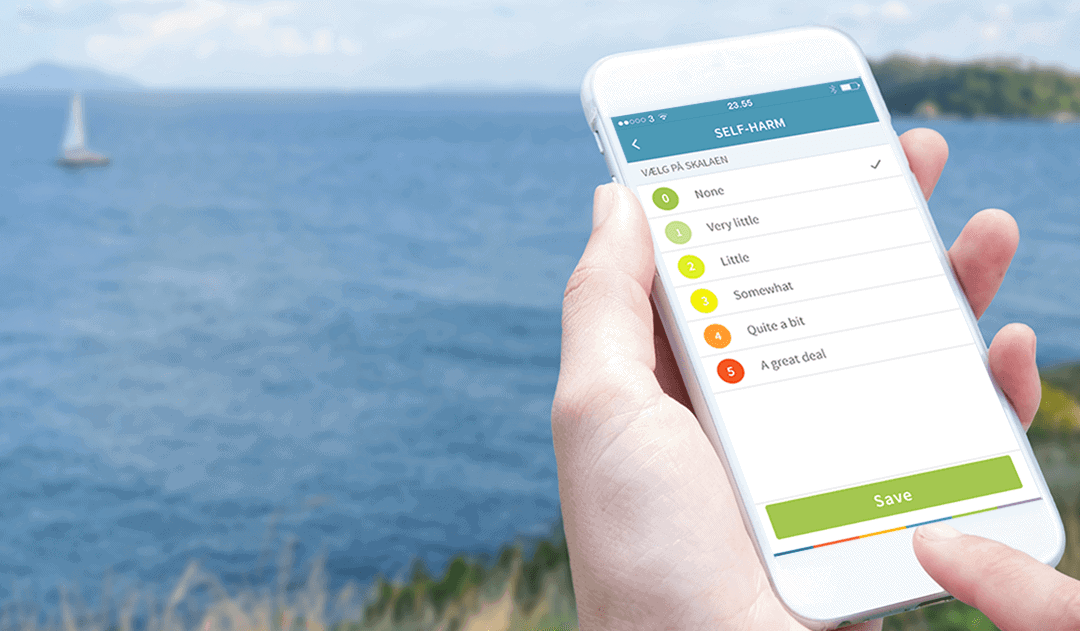
Jul 17, 2017
DBT smartphone app by Monsenso will be implemented by the end of August
Copenhagen, Denmark – 18 July 2017 Monsenso, a Danish developer in mobile health solutions for mental health, has announced that Datlinien, a private clinic in Denmark, will soon implement the Monsenso mHealth solution with an added Dialectical Behavioural Therapy (DBT) module.
DBT is an evidence-based treatment that is commonly used to treat Borderline Personality Disorder.
Online-based DBT solutions have been found to make treatment easier to manage for clinicians, by storing information in an easily accessible place through cloud technology.
A new DBT module was recently added to the Monsenso mHealth solution as part of the mDiary Study, a research project done in collaboration with several Danish partners. The Monsenso mHealth solution, which consists of a smartphone app for individuals and a web portal for clinicians, provides a reliable, efficient, and clinically-validated smartphone based approach to DBT.
Some of the key factors of DBT include skills training and self-monitoring, which have been administered traditionally through paper-based self-assessments, workbooks and diaries. The Monsenso DBT smartphone app helps optimise and organise this process, by putting self-assessments, self-monitoring, skills training, emotion rating, and synchronized clinician feedback into one convenient location – your smartphone.
Datlinien offers mental health services, with a special focus on DBT, to public and private institutions, and they provide DBT treatment for both group and individual therapy.
Thomas Lethenborg, CEO at Monsenso, said “This new DBT module was developed as part of the mDiary Study to complement the treatment of individuals undergoing DBT treatment. It was designed to modernise the traditionally used paper-based assessments and skills training, and to make it more intuitive.”
Dr. Shahram Elahi Panah, General Manager of Datlinien, said “By adopting this new technology, we want to raise the bar on the mental health services offered by private clinics in Denmark. The Monsenso DBT smartphone app makes data collection and skills training more fun and interactive, which is great for the patients because it increases compliance and engagement. On the other hand, it is also great for us, the clinicians, because we can visualise all the patient data more easily.”
Click on the link to read the press release in Danish.
For additional information contact:
Helen Chen
Marketing
Monsenso
+45 30 25 15 26
chen@monsenso.com

Mar 26, 2017
The MDiary Study is a part of the ENTER project (previously called E-Mental), which is being done in collaboration with The Mental Health Services in the Region of Southern Denmark (MHS), the South Denmark University, Aalborg University, and Context Consulting.
Borderline Personality Disorder (BPD)
Borderline is a serious and debilitating mental disorder characterised by difficulties with regulating emotions, which leads to unstable and self-destructive behaviours and relationships.
The prevalence of BPD is 1%-5%. Borderline increases the risk for suicide by 4-fold, while patients with comorbid Borderline and a tendency to self-harm have a further 2-fold attenuated risk. BDP is difficult to treat, and even more difficult when co-occurring with other disorders.
Dialectical Behaviour Therapy (DBT) is the best validated treatment for Borderline, showing medium to large effect sizes as compared to treatment as usual. Dialectical Behaviour Therapy uses self-monitoring as the mainstay of treatment, which helps patients regulate their emotions by means of emotional regulating skills, and reduce problem behaviour.
Self-monitoring has traditionally been done by means of daily paper diaries. The latest developments in smartphone applications have generated alternatives for ecological momentary assessments of problematic behaviour with the additional functionality of prompting patients to practice skills targeting emotion regulation.
Monsenso’s involvement in the the mDIARY Study for patients with Borderline Personality Disorder
Monsenso is responsible for improving and developing additional modules in the Monsenso mHealth solution. The objective of the study is to prove that the Monsenso DBT (Dialectical Behavioural Therapy) solution is a reliable and clinically valid way to collect patient data, helping individuals with Borderline learn these skills at home, speeding up their recovery.
1. Skills tracking
In the current configuration used for DBT treatment, skill used throughout the day can be selected in the daily self-assessment. This does not take into account if the patients have actually learned the skills, meaning a lot of skills will appear in the list that the patient might not already know. In order to personalise the skills list, and in order to help the clinicians and patients to track progress, the skills should be configurable in the sense that the patient is able to indicate whether they have not learned a skill, are in the process of learning a skill, or know it and can use it meaningfully. This implies, the the patients should be able to, on their phone in the configuration section of the self-assessment, to have a list of skills appear, where they can indicate whether a skill is ’Not known’, ’In the process of learning’, or ’I know it, and can use it meaningfully’.
2. Skills training / Psychoeducation
In DBT treatment, skills are an essential part, and patients often have a paper folder, with descriptions of each skill. In the current version, the “Action Plans”’ in the system have been used for this purpose, but it makes it not very easy to overview and need more ways of presenting content, like videos or sound files. The layout is like a dictionary, where patients can find information regarding their disorder, usual treatment regime, prevalence, but alto typical issues and preventive actions that could be taken.
3. Emotion rating (BEARS)
One parameter in the self-assessment should be named “Emotions” in which joy, anger, attachment, sadness, safety, anxiety, pride and shame can be be rated on a scale of 0-4:
0 – Not at all
1 – A Little
2 – Some
3 – A lot
4 – Extreme
It is important that they are all rated in the same screen, as the patient need to see these together.
4. Therapy progress / Detailed overview
The overview screen will be re-designed and focus around “Therapy progress,” highlighting the progress over time. The key factor for the use of the system should be the patients’ development and progress over an extended period. The scope of the solution is to include graphs of the clinical questionnaires in the overview screen, which includes summary scores of DERS, BSL, and HTQ questionnaires. Likewise the attendance percentage should be shown, together with the Hierarchy level rated by the clinician.
To learn more read:

Feb 1, 2016
Monsenso will begin clinical trials of smartphone-based DBT (Dialectical Behavioural Therapy) for patients with Borderline Personality Disorder in collaboration with the Mental Health Services in the Region of Southern Denmark (MHS).
Smartphone-based DBT
The objective of the mDiary Study is to evaluate the Monsenso mHealth solution for borderline patients with respect to reliability, validity and clinical efficacy as an adjunct to DBT.
Borderline is a severe mental disorder characterised by difficulties with regulating emotions, leading to unstable and self-destructive behaviours. Borderline is difficult to treat, especially when co-occurring with other disorders. DBT is the best validated treatment for borderline, showing an improved health outcome compared to other types of treatment.
DBT uses skills training and self-monitoring as the pillar of treatment, teaching patients to regulate their emotions and reduce problem behaviour. Traditionally, self-monitoring was made through paper-based self-assessments. However, new technology has generated an alternative to ecological momentary assessments of problematic behaviours with the additional functionality of prompting patients to practice skills targeting emotion regulation.
Methods
Participants will be borderline patients from psychiatric DBT units. The study includes two phases: the first phase will be a three-month pilot study where patients will be randomised to use either the pen and paper version of the diary card or the Monsenso mHealth app. The number of missing data will be compared, and data quality of the app versus established clinical measures will be evaluated. User satisfaction will be assessed with focus group interviews.
The second phase will include a two-year multi-centre randomised controlled trial. In both conditions patients will be followed for one year. Half of the patients will receive the mHealth app that includes mobile DBT (mDBT) coaching suggestions and instructions on how to use it. The second half will be asked to download an app that only collects sensor data, but will continue to use the traditional paper-based self-assessments.
Expected results
The mDiary Study will prove that the Monsenso smartphone-based DBT is a reliable and valid way to collect patient-data, helping individuals learn these skills at home, speeding up their recovery.
To read the press release click here.



